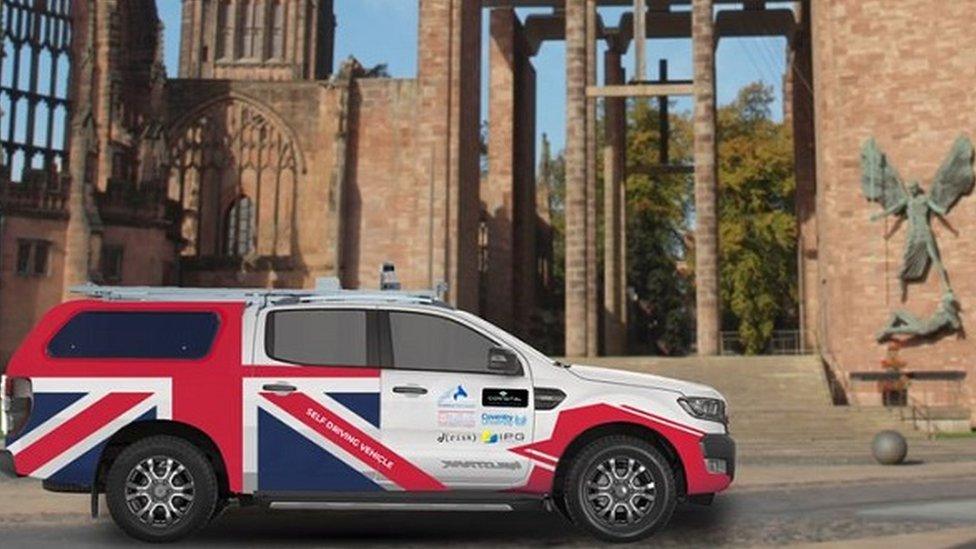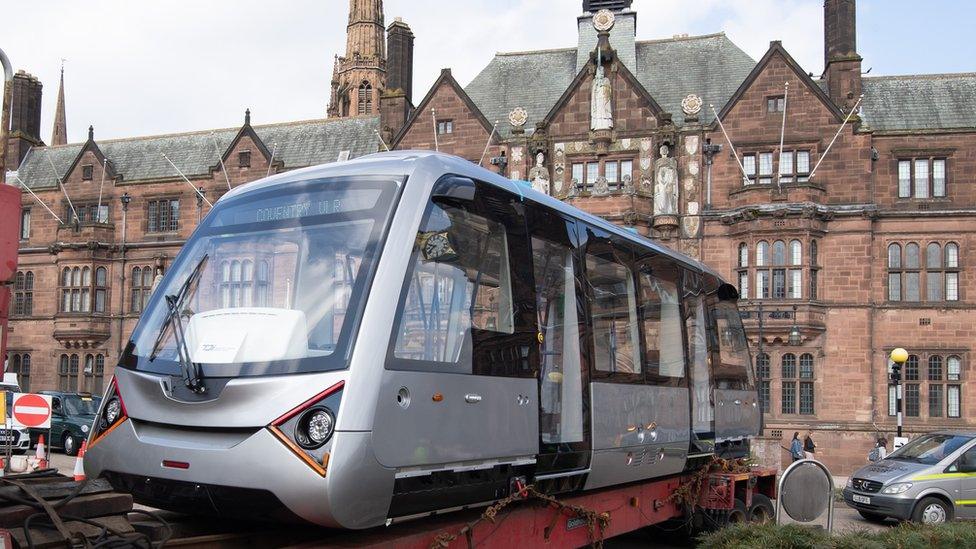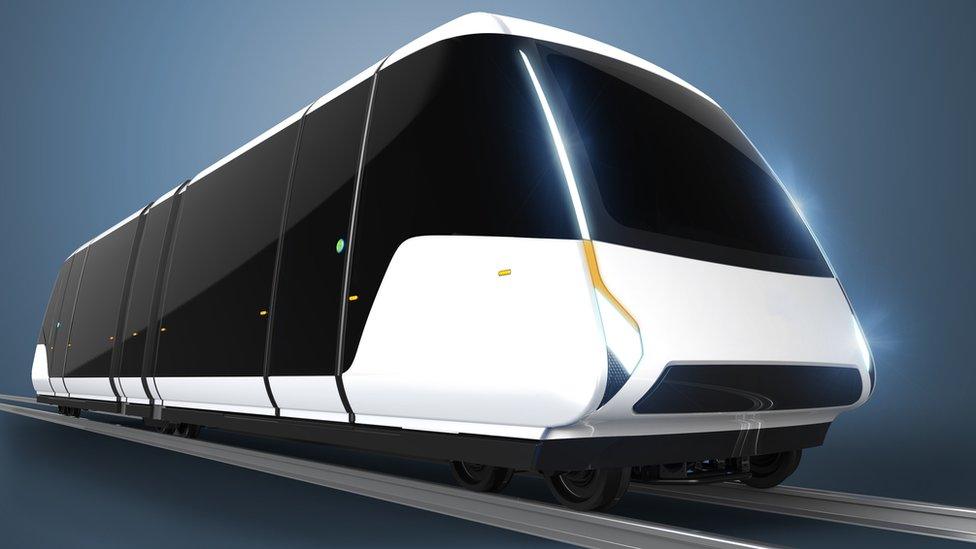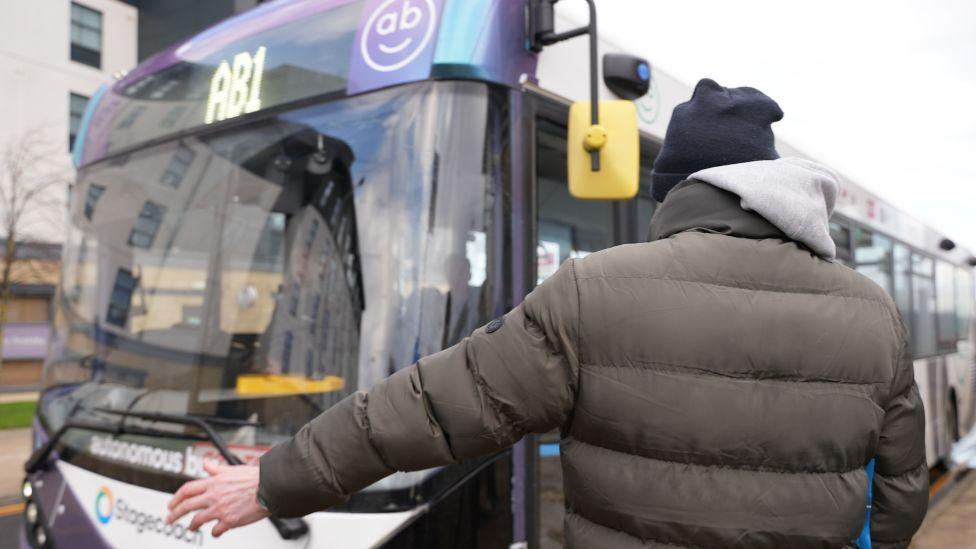Coventry and Solihull awarded £15m for driverless shuttles
- Published

The shuttles would be monitored and controlled centrally
A project developing driverless shuttles in Coventry and Solihull has received £15.2m in funding.
The grant, from government and industry, is to establish passenger routes between Coventry railway station and the city's university campus.
Shuttles are also hoped to run between Birmingham International station, Birmingham Business Park and the NEC.
"The city and region is really leading the way here," said Coventry councillor Jim O'Boyle.
"This is an emerging sector which will create jobs and opportunities for local people, supporting the economic success of the city," he added.
Solihull council leader Ian Courts said automated shuttle trials had already been carried out "safely" in the borough.
"However, this next step will help develop our understanding around the commercial viability of self-driving operations," he added.
The proposed routes, which will be served by 13 vehicles, are being developed by a regional consortium led by driverless vehicle company Conigital.

Coventry's plans for a light railway were first put forward in 2018
A remote operating centre, run by Transport for West Midlands, will monitor the vehicles using 5G technology and take control if necessary.
Coventry City Council said the technology would be transferable to all vehicles including the "very light" railway scheme in development.
It hoped to demonstrate vehicles toward the end of a two-year time frame, the authority added.
West Midlands mayor Andy Street said the latest funding announcement was "yet another huge vote of confidence" in the region.
Conigital CEO Don Dhaliwal said the Multi-Area Connected Automated Mobility (MACAM) project would create "a safer and cleaner and more climate conscious future".
The government has awarded £42m to automated vehicle projects across the country, a sum matched by private industry.
A slice of £8.3m has been set aside for the MACAM project, which is also supported by the NEC, Solihull Metropolitan Borough Council and the West Midlands Combined Authority.
Other partners include Direct Line Group, the University of Warwick, Coventry University, dRisk and IPG Automotive.
Birmingham is also set to get a portion of £600,000 for feasibility studies to look at potential routes where automated vehicles might operate exclusively.
Business Secretary Grant Shapps said: "In just a few years' time, the business of self-driving vehicles could add tens of billions to our economy and create tens of thousands of jobs."
Forecasts predicted that by 2035, 40% of new UK car sales would have self-driving capabilities, the government said.

Follow BBC West Midlands on Facebook, external, Twitter, external and Instagram, external. Send your story ideas to: newsonline.westmidlands@bbc.co.uk, external
Related topics
- Published19 August 2022

- Published20 January 2023
